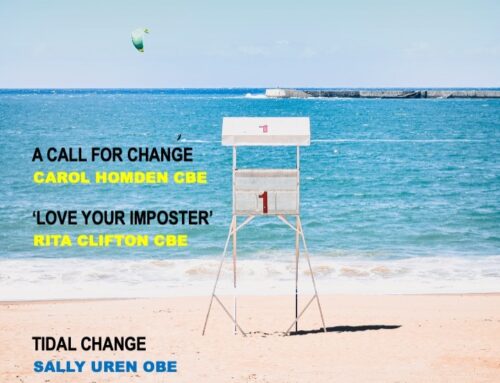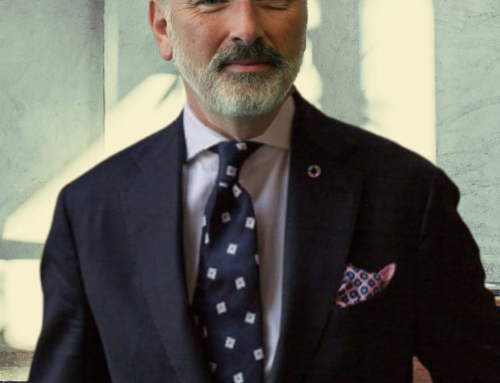The Universality of Kindness

The pandemic has revealed the universality of kindness – now we must harness it to make a real difference
The coronavirus pandemic has proved what I always knew was true: humans are kinder and more compassionate than many assume. Positive responses to the virus – from nations helping each other to mass volunteering efforts to gratitude shown towards carers – make me confident we can unleash the care and creativity needed to solve the world’s gravest problems. But to do so we need to turn compassion and solidarity into concrete action. Kind hearts alone will not tackle inequality, reverse climate change, or preserve the planet’s biodiversity.
In On Kindness, the writer and psychoanalyst Adam Phillips observes that “Popular icons of kindness – Princess Diana, Nelson Mandela, Mother Teresa – are either worshipped as saints or gleefully unmasked as self-serving hypocrites.” Over the years, writes Phillips, we have come to accept a conception of the self as fundamentally determined by self-interest. We have become the children of Thomas Hobbes: selfish competitors in a harsh world.
In such a world, kindness – defined as “sympathetic identification with the vulnerabilities of others” – is always viewed as exceptional. It’s what makes it noteworthy when a financier gives up his highly-paid job to teach vulnerable children. It’s why we laud extravagant charitable giving. Philips argues that this view of kindness has blinded us to its universality. Kindness, he writes, is a more common component of happiness than our individualistic culture would have you think. That we are even a little surprised by its pleasures tells us more about how far we have strayed from ourselves than the concept of kindness itself.
The German critic Theodore Adorno wrote, “No less indiscriminate and general than the alienation between people is the desire to breach it”. In other words, kindness, far from being abnormal, is a fundamentally human impulse. The philosopher David Hume endorsed this sentiment. As a view of mankind as essentially selfish gained momentum in the 18th century, he dismissed the idea. He who denies the existence of human kindness, he wrote, “has forgotten the movements of his heart”.
This is borne out by the events of 2020. For six months, running parallel to the immense trauma and suffering wrought by coronavirus, an outpouring of kindness has given me hope. Businesses have embraced new responsibilities, extending credit to suppliers and assisting in the provision of key supplies. People of all races and nationalities have taken to the streets in solidarity with victims of racism. The world has erupted in gratitude for the medical and care workers on the front line of this crisis.
The pandemic has caused a global uptick in empathy, but it has also shown how instinctive kindness is for the vast majority of people. It wasn’t just in Europe that neighbours gathered on their balconies to applaud the courage of key workers. Similar scenes were seen in California, India and Japan. And just as millions volunteered to help the NHS, billions have been donated to help poorer countries help battle the virus.
Once we accept kindness is normal and expected, rather than exceptional and optional, the next step is to ask how we convert it into action to help save the planet. To do that we need courageous business leaders who are willing to act, individually and in small collectives, to make the world better for their fellow humans. Kind sentiment, without action, is not enough. By acting collectively, we can preserve the compassion of this moment and nurture it into something consequential.
Because contained within the trauma of the pandemic is the opportunity to re-imagine how the world works. We have the chance to rebuild a fairer, greener society. This is important, because though the virus is the most immediate threat we face, it is far from the only one. Our world was in a troubled state even before Covid-19 took hold. One only needs to look at the division and unrest in the US to see this. The global economic system, geared toward the maximisation of short-term profit, has brought not just environmental destruction, but inequality and political instability. In its ravaging of vulnerable communities, Covid-19 has held a magnifying glass to all we were doing wrong. But in doing so it has given us a chance to change course.
The pandemic has proved, contrary to what culture would have us believe, that kindness comes naturally to us all. Far from a competitive disadvantage, empathy and compassion are essential to our survival. We need to cooperate, look out for each other, or we will all suffer. This is true of the pandemic, of course, but it is also true of the destruction of our natural world, global inequality and climate change. We know now that we are kind. Now we have to act like it.
Valerie Keller
C0-founder, Imagine
http://www.queenscommonwealthtrust.org
Instagram: @queens_commonwealth_trust
Facebook: @queenscommonwealthtrust
Twitter: @queenscomtrust
Twitter: @NicolaBrentnall


The Universality of Kindness

The pandemic has revealed the universality of kindness – now we must harness it to make a real difference
The coronavirus pandemic has proved what I always knew was true: humans are kinder and more compassionate than many assume. Positive responses to the virus – from nations helping each other to mass volunteering efforts to gratitude shown towards carers – make me confident we can unleash the care and creativity needed to solve the world’s gravest problems. But to do so we need to turn compassion and solidarity into concrete action. Kind hearts alone will not tackle inequality, reverse climate change, or preserve the planet’s biodiversity.
In On Kindness, the writer and psychoanalyst Adam Phillips observes that “Popular icons of kindness – Princess Diana, Nelson Mandela, Mother Teresa – are either worshipped as saints or gleefully unmasked as self-serving hypocrites.” Over the years, writes Phillips, we have come to accept a conception of the self as fundamentally determined by self-interest. We have become the children of Thomas Hobbes: selfish competitors in a harsh world.
In such a world, kindness – defined as “sympathetic identification with the vulnerabilities of others” – is always viewed as exceptional. It’s what makes it noteworthy when a financier gives up his highly-paid job to teach vulnerable children. It’s why we laud extravagant charitable giving. Philips argues that this view of kindness has blinded us to its universality. Kindness, he writes, is a more common component of happiness than our individualistic culture would have you think. That we are even a little surprised by its pleasures tells us more about how far we have strayed from ourselves than the concept of kindness itself.
The German critic Theodore Adorno wrote, “No less indiscriminate and general than the alienation between people is the desire to breach it”. In other words, kindness, far from being abnormal, is a fundamentally human impulse. The philosopher David Hume endorsed this sentiment. As a view of mankind as essentially selfish gained momentum in the 18th century, he dismissed the idea. He who denies the existence of human kindness, he wrote, “has forgotten the movements of his heart”.
This is borne out by the events of 2020. For six months, running parallel to the immense trauma and suffering wrought by coronavirus, an outpouring of kindness has given me hope. Businesses have embraced new responsibilities, extending credit to suppliers and assisting in the provision of key supplies. People of all races and nationalities have taken to the streets in solidarity with victims of racism. The world has erupted in gratitude for the medical and care workers on the front line of this crisis.
The pandemic has caused a global uptick in empathy, but it has also shown how instinctive kindness is for the vast majority of people. It wasn’t just in Europe that neighbours gathered on their balconies to applaud the courage of key workers. Similar scenes were seen in California, India and Japan. And just as millions volunteered to help the NHS, billions have been donated to help poorer countries help battle the virus.
Once we accept kindness is normal and expected, rather than exceptional and optional, the next step is to ask how we convert it into action to help save the planet. To do that we need courageous business leaders who are willing to act, individually and in small collectives, to make the world better for their fellow humans. Kind sentiment, without action, is not enough. By acting collectively, we can preserve the compassion of this moment and nurture it into something consequential.
Because contained within the trauma of the pandemic is the opportunity to re-imagine how the world works. We have the chance to rebuild a fairer, greener society. This is important, because though the virus is the most immediate threat we face, it is far from the only one. Our world was in a troubled state even before Covid-19 took hold. One only needs to look at the division and unrest in the US to see this. The global economic system, geared toward the maximisation of short-term profit, has brought not just environmental destruction, but inequality and political instability. In its ravaging of vulnerable communities, Covid-19 has held a magnifying glass to all we were doing wrong. But in doing so it has given us a chance to change course.
The pandemic has proved, contrary to what culture would have us believe, that kindness comes naturally to us all. Far from a competitive disadvantage, empathy and compassion are essential to our survival. We need to cooperate, look out for each other, or we will all suffer. This is true of the pandemic, of course, but it is also true of the destruction of our natural world, global inequality and climate change. We know now that we are kind. Now we have to act like it.
Valerie Keller
C0-founder, Imagine
http://www.queenscommonwealthtrust.org
Instagram: @queens_commonwealth_trust
Facebook: @queenscommonwealthtrust
Twitter: @queenscomtrust
Twitter: @NicolaBrentnall





